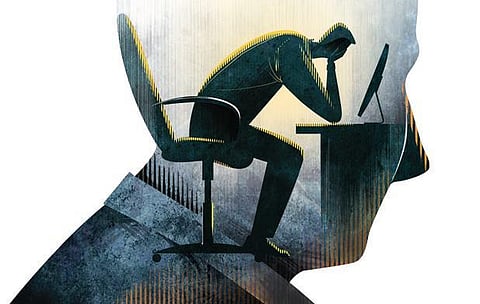Make mental health a priority
KOCHI: We are living in times when there is widespread neglect of mental health, lack of infrastructure, poor investment, grossly inadequate numbers of mental health professionals and stigma against mental illness and people with mental health problems.
According to WHO, the mental health gap (between what is necessary and what is available) is as high as 80-90% in most Low And Middle Income (LAMI) countries, including India. This means, 80-90% of people with mental health problems, receive no treatment in India. The situation is slightly better in Kerala and other southern states, but it is far from adequate.
The number of psychiatrists in India is 7,000 for a population of 1.45 billion, a measly ratio of 1 psychiatrist for 200,00 population. The number of clinical psychologists, psychiatric social workers and psychiatric nurses is fewer. There is glaring neglect of mental health in our country which is evident by the increasing number of suicides, drug abuse, alcoholism, domestic violence and crimes against the marginalised sections of society including children, women, older people, migrants etc.
Violation of the human rights of persons with mental illness is a serious issue that the WHO and World Federation of Mental Health (WFMH) want to bring to focus this year. It is 75 years since the United Nations General Assembly adopted the Universal Declaration of Human Rights on 10 December 1948 which stated, “All human beings are born free and equal in dignity and rights“. Its scope was further enlarged when in 1966, the International Covenant on Economic, Social and Cultural Rights (ICESCR) was adopted. Article 12 stated, ‘The States Parties to the present Covenant recognize the right of everyone to the enjoyment of the highest attainable standard of physical and mental health.’
Increase awareness
The observance of Mental Health Day should remind all governments and policymakers that providing good quality mental health care that is affordable, accessible and available is their prime responsibility. WHO estimates one out of eight persons (12.5% of the population) suffer from mental health problems. Human rights violations can be indirect in the form of discrimination and stigma. We must work to increase awareness and knowledge about mental health problems, liberty, independence and inclusion.
What needs to be done?
Let’s extend empathy, recognition and support from families and peers. Health workers should have a strong sense of justice, acceptance and respect for individual differences. Besides, we should make our mental health centres properly facilitated
(Dr Roy Abrahm Kallivayalil is chairman (Asia-Pacific) and vice president of the World Federation for Mental Health- and Professor and Head of Psychiatry, Pushpagiri Medical College, Thiruvalla)

